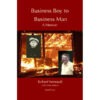There used to be one type of memoir, and it was mostly—although never exclusively—reserved for the rich and famous.
Much has changed.
The one kind of memoir genre that prevailed was written by famous people about the important events in history that they had taken part in. Mostly, these accounts were about how wonderful they were and how important their roles in history had been. Often, these memoirs were about excoriating their political or business rivals and actually provided little emotional or psychological insight into the protagonist other than s/he was a “good guy.”
Today, we have more kinds of memoir types—or genres—than we could have imagined even only several generations ago. This Memoir Writer’s Blog category devoted to types of memoir is proof of that.
Today’s memoir genres—and I’m including only the subcategories in this category—include the following:
In beginning to write a memoir, you need not have a clear sense of where in the types of memoir your story is likely to fit. Some writers‚ such as Kate Christensen who began to write her Blue Plate Special with a sure sense that it would be a foodoir, know from early on what it is they are writing. Other writers, however, begin by simply writing.
When Mary Ellen Ellwell began her With No Extraordinary Power, she had no idea where the writing would bring her. Eventually she realized that, of all the types of memoir, what she most wanted to write was a professional memoir. She had been head of a National Council of Social Work Education and, in that capacity, had sponsored the adoption of the BSW which today is accepted as a gateway degree but which she had to champion over many year to get it accepted in the profession. For more on this author, click here.
Below are posts, listed chronologically, by writers who have had interesting life journeys that took them to physical and emotional arenas they had not dreamed of as young people. Links to their books are available in the articles.
If you are interested only in subcategories, click to the links in the bulleted list above.
In conclusion
If you would like to explore writing our own book, to examine and record your experience, click here.

Difficult, Painful Memories Can Make a Memoir More Psychologically Astute.
We all arrive at adulthood with some difficult painful memories. In this post, I offer you procedures for dealing with and healing those memories.
First of all, writing about painful memories should not be an occasion to re-traumatize yourself. Stop for the moment if you feel overcome, but if you feel ready to write about a painful time, begin by writing all the details of the memory. Details need not be significant. If there was a cup of coffee on the table, mention it. You will find that little details help bring your memory back.
Yes, difficult, painful memories are disturbing.
[Free Membership required to read more. See below. ]
We'd love to have you access this content. It's in our members-only area, but you're in luck: becoming a member is easy and it's free.
Already a Member?
Not a Member Yet?

Banish Fear of Revealing Too Much: Be a Bigger Presence in Your Memoir
The fear of revealing too much of ourselves in the memoir we are writing can be paralyzing.
We wonder: “What will people say? How will people react to what I am revealing?” So…
We hold back in our writing. We stop ourselves from personal revelation, from sharing secrets.
The fear is founded—it’s not always a friendly world out there. And, of course…
[Free Membership required to read more. See below. ]We'd love to have you access this content. It's in our members-only area, but you're in luck: becoming a member is easy and it's free.
Already a Member?
Not a Member Yet?

Who is Your Memoir Narrator?
This may sound like a trick question, but it’s not. In fact, “who is your memoir narrator?” is a very serious question that will determine—or at least greatly influence—the tone and the theme of your narrative and how your reader views your story as being truthful.
Your choice of memoir narrator and the consequences of this choice.
[Free Membership required to read more. See below. ]
We'd love to have you access this content. It's in our members-only area, but you're in luck: becoming a member is easy and it's free.
Already a Member?
Not a Member Yet?

Writing more Deeply: The pain in telling the truth
My new memoir, French Boy (due out in the summer of 2023), is about my childhood. Much about this time in my life has a context that is unique and consequently different from that of my contemporaries. This memoir has a place in the world of memoirs, and I want it to find that place, but writing it has also brought up some pain which I did not want. Once again, I found out that there is pain in telling the truth.
My parents were thoughtful and loving people so their behavior towards me is not an issue. I am not writing about a reprehensible or shameful experience. I am dealing with a more average pain that is both little for the world and big for me.
[Free Membership required to read more. See below. ]We'd love to have you access this content. It's in our members-only area, but you're in luck: becoming a member is easy and it's free.
Already a Member?
Not a Member Yet?

Holding the Pen—Writing the Story of My Life
When writing the story of my life, I didn’t let anyone else hold the pen For the past eight months, I have been writing my lifestory. As a professional personal historian, I believe in practicing what I preach to those in my lifestory writing workshops. I have even gone as far as hiring an editor to help me. There is nothing quite like being accountable to another person. I firmly believe that everyone has a story worth telling. I’d like to share with you my motivation and exactly why I decided to get busy preserving my own story.
A valuable resource to remember the past more accurately when writing the story of my life
I possess 523 personal and heartfelt letters that were written over a span of thirty-nine years – precious letters written between my grandmother and myself. My dear grandmother was more like my mother and our relationship was a very close one. As I thought more about writing my lifestory, I wondered “how can I use these insightful letters to help me tell my story.” It seemed to me as if each one of these 523 letters were calling out to me. (Writing the story of my life, I found these proved invaluable.) A great many of the letters were written during the time I lived overseas with my husband, an Information Officer working for the Central Intelligence Agency. Together, we lived in six foreign countries from 1976 through 1992 making eighteen moves during that time. [Free Membership required to read more. See below. ]
We'd love to have you access this content. It's in our members-only area, but you're in luck: becoming a member is easy and it's free.
Already a Member?
Not a Member Yet?

Work With or Through Pain: Writing Painful Memories
In this video, Work With or Through Pain: Writing Through Painful Memories, I talk about writing through painful memories. Pain is often a barrier to memoir writing. Who wants to revisit difficult times? Although delving into the past is a generally pleasant experience and promotes healing and growth, it can also be painful.

The Theme-focused Memoir
While many of the people whom I have helped to write a memoir have come ostensibly to write about their lives – to celebrate some achievement, I would say that many of these people are also writing a mission-driven memoir, a theme-focused memoir.
Behind the desire to tell about their lives, there is some intent to promote a point of view. This comes under many guises. Generally, of course, this point of view is called “theme.”
The theme-focused memoir is the most common model.
Writing a manuscript only of one’s experience—the dates, the facts, the activities—may often not enough to entice the reader—at least, it will not interest the reader who is not family and friends. [Free Membership required to read more. See below. ]
We'd love to have you access this content. It's in our members-only area, but you're in luck: becoming a member is easy and it's free.
Already a Member?
Not a Member Yet?

Surviving Childhood Abuse: A Writer’s Experience
Congratulations to Denise Brown on the publication of her book, Transcending Darkness: A Memoir of Abuse and Grace. I recently had the opportunity to interview Denise about her experience writing her book on surviving childhood abuse. I am pleased to share her experience. To read Part 2, click here. To read Part 3, click here.—DL
Denis Ledoux: Can you tell our readers what your book is about and why you were impelled to write it? What was driving you to spend the time, energy and money to get this book out into the world?
Denise Brown: Transcending Darkness is a memoir about the abuse that I experienced during my childhood. Abuse led me on a path of self-destruction. This path encountered God and his mercy in unexpected ways. It sounds like a crazy story, but I began writing my memoir when I was in college after having an incredible dream. An angel brought me to visit three teenage girls who were suffering emotionally. Each of them had been reading a book and were crying. I realized that the book was giving them a glimmer of hope for their futures. Then the angel revealed to me that it was my book that I had not yet written that they were reading, and that I was being given the choice of helping them or not. After that, I couldn’t get the dream out of my head! I began writing what would become Transcending Darkness a few days later.
DL: Can you tell us how long it took from the time you conceived the book to the time you had it published? How many years did you spend in active writing? Were there long breaks in between active writing periods? If so, what happened to get you writing again? Writing about surviving childhood abuse must have been difficult. emotionally
[Free Membership required to read more. See below. ]We'd love to have you access this content. It's in our members-only area, but you're in luck: becoming a member is easy and it's free.
Already a Member?
Not a Member Yet?

“Making Nice” Will Trip You Up
We all have family stories that we have heard over and over again. When they are told in family gatherings, no one expects any contradiction. After all, the stories are the “truth” about someone in the family but “making nice”—not telling the truth in memoir—will trip you up.
How do you write truth in memoir writing?
[Free Membership required to read more. See below. ]
